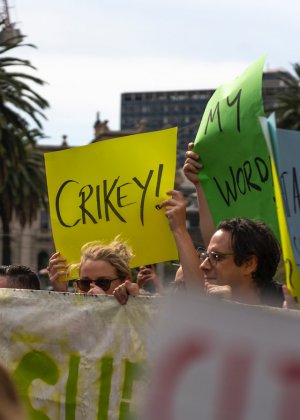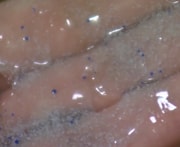Are we losing our Aussie slang?
We Aussies have always had a way with words, and we are famed for it. Our charming use of the English language has fascinated and perplexed foreigners, especially when we have terms such as ‘budgie smugglers,’ ‘a few roos loose in the top paddock,’ and ‘in the nuddy’ in rotation. Just see how American late-night talk show host Conan O’Brien was amazed while trying to learn our distinct colloquialisms with Aussie voice and dialect coach Gabrielle Rogers:
Our ‘slanguage’ – or slang language – is deeply embedded in our culture. Its history is also long, going all the way to the earliest English settlements in Oz.
But is it slowly being phased out? Many older Aussies find that some of the slang they used no longer resonated with younger people. One member of the Australian forum on Reddit, a social news website, observed the same, leading them to muse with other Redditors.
In a post entitled ‘Are we losing our Aussie slang? Tell me I’m dreaming,’ they said: ‘I recently had a conversation with a younger person (20-something), where they talked about hiking and I mentioned that I’d always referred to it as ‘bush walking’. They thought I said ’Bush Week’ (which was funny in itself). I then explained to them what ‘Bush Week’ meant as they’d never heard of it, and I realised that I actually can’t recall the last time I used that term or heard it. It’s got me wondering what other Aussie sayings have been lost or are barely used anymore.’
Many took the chance to share our colourful phrases, such as ‘not here to f*** spiders,’ ‘Dry as a dead dingo's donga,’ ‘Going off like a frog in a sock,’ ‘Flat out like a lizard drinking,’ and ‘Mad as a cut snake’ – isn’t it delightful how we highlight the wonderful wildlife of Straya in our slang?
Others shared similar experiences to that of the original poster. One said: ‘A couple of years ago, a young shop assistant asked me if I needed any help. I told her I was “just having a gander”. She asked what I meant.’
Another posted: ‘I had a young (prob mid-20s) guy at work today look at me blankly when I told him I was going to "scarper”, he had never heard it before. I'm mid-30s and didn't think it that rare a term.’
One Redditor commented: ‘I've heard people use trash instead of rubbish. I started work at a new place and asked where the dunny was. They didn't know what I meant.’

Crikey! Our slang also makes for great protest signs that get the point across. Credit: Lawrence Makoona
Meanwhile, others gave their two cents about the possibility of Oz slowly losing its slang.
‘Are we losing our slang? Certainly, to some extent. Moving from regional areas to the city, it's shocking how big the differences are, to the point where I'd almost call it a separate dialect,’ one said.
Another Aussie expounded on the relationship between cities and slang: ‘Cities tend to be cultural melting pots, and slang doesn't really work that well when you're speaking to someone who is ESL and not familiar with it. I try to be inclusive when speaking to people and slang works against that in the city.’
Some Aussies were disappointed to see our vernacular lose its Australian touch. One frustrated Redditor said: ‘Everyone sounds American now. It's f**king depressing. I'm not even patriotic. I think patriotism is stupid. But I'll be buggered if I ever say sidewalk, trash can, candy, cookies unironically.’
‘Saying "First Responders" or any other cringe Americanism should result in a public flogging,’ another said, half-jokingly, we hope.
But a Redditor doing their PhD on the subject had something to say about slang and incorporating American vernacular into it: ‘So far, it's not dying but certainly changing. The fear of Americanisation is one that's been around for 100 years, so I wouldn't be worried. It plays a part in some of the changes, for sure, but it's been 100 years since and we're still not American. We're still making new unique words and phrases, and words like grouse and cobber, while appearing to disappear, tend to weirdly reemerge every couple of decades.’ In a piece on The Conversation, Kate Burridge and Howard Manns noted that the concern had existed since the 1920s when American talkies were introduced.
Slang, and language in general, is ever evolving. With globalisation and Oz being a multicultural country, the way our expressions go would surely change. Still, it doesn’t mean our identity is being wiped out, as one Redditor pointed out: ‘As it is, we're likely homogenising – as immigration and globalisation have their impacts – but we'll always retain a little something that is our own. But it probably won't be quite the same as what you grew up with.’
Another commenter made a good assertion: ‘I think slang, in general, is just an always changing thing. People in the States don't go around saying "groovy" or "radical" anymore. And with culture being more of a global thing, it will get homogenised.’
And we have our share of slang that has gone out of fashion, such as the Australian terms from the 19th century listed by Mental Floss. However, it could be interesting to use ‘off his kadoova’ and ‘to hump the swag’ in your everyday conversations. Who knows, it might catch on again!
The rich discussion only showed that while some words are becoming obsolete, our ‘slanguage’ is still alive and kicking. Heck, we even contribute to the global lexicon – ‘selfie’ is as Australian as they come! The original poster eventually added this edit: ‘By the looks of it, Aussie slang is here to stay. Though changing over time somewhat, it seems “she’ll be right, mate”!’
So, what do you think? Do you have delightful and unique Australian phrases you wish were used more today? Let us know in the comments!
Our ‘slanguage’ – or slang language – is deeply embedded in our culture. Its history is also long, going all the way to the earliest English settlements in Oz.
But is it slowly being phased out? Many older Aussies find that some of the slang they used no longer resonated with younger people. One member of the Australian forum on Reddit, a social news website, observed the same, leading them to muse with other Redditors.
In a post entitled ‘Are we losing our Aussie slang? Tell me I’m dreaming,’ they said: ‘I recently had a conversation with a younger person (20-something), where they talked about hiking and I mentioned that I’d always referred to it as ‘bush walking’. They thought I said ’Bush Week’ (which was funny in itself). I then explained to them what ‘Bush Week’ meant as they’d never heard of it, and I realised that I actually can’t recall the last time I used that term or heard it. It’s got me wondering what other Aussie sayings have been lost or are barely used anymore.’
Many took the chance to share our colourful phrases, such as ‘not here to f*** spiders,’ ‘Dry as a dead dingo's donga,’ ‘Going off like a frog in a sock,’ ‘Flat out like a lizard drinking,’ and ‘Mad as a cut snake’ – isn’t it delightful how we highlight the wonderful wildlife of Straya in our slang?
Others shared similar experiences to that of the original poster. One said: ‘A couple of years ago, a young shop assistant asked me if I needed any help. I told her I was “just having a gander”. She asked what I meant.’
Another posted: ‘I had a young (prob mid-20s) guy at work today look at me blankly when I told him I was going to "scarper”, he had never heard it before. I'm mid-30s and didn't think it that rare a term.’
One Redditor commented: ‘I've heard people use trash instead of rubbish. I started work at a new place and asked where the dunny was. They didn't know what I meant.’

Crikey! Our slang also makes for great protest signs that get the point across. Credit: Lawrence Makoona
Meanwhile, others gave their two cents about the possibility of Oz slowly losing its slang.
‘Are we losing our slang? Certainly, to some extent. Moving from regional areas to the city, it's shocking how big the differences are, to the point where I'd almost call it a separate dialect,’ one said.
Another Aussie expounded on the relationship between cities and slang: ‘Cities tend to be cultural melting pots, and slang doesn't really work that well when you're speaking to someone who is ESL and not familiar with it. I try to be inclusive when speaking to people and slang works against that in the city.’
Some Aussies were disappointed to see our vernacular lose its Australian touch. One frustrated Redditor said: ‘Everyone sounds American now. It's f**king depressing. I'm not even patriotic. I think patriotism is stupid. But I'll be buggered if I ever say sidewalk, trash can, candy, cookies unironically.’
‘Saying "First Responders" or any other cringe Americanism should result in a public flogging,’ another said, half-jokingly, we hope.
But a Redditor doing their PhD on the subject had something to say about slang and incorporating American vernacular into it: ‘So far, it's not dying but certainly changing. The fear of Americanisation is one that's been around for 100 years, so I wouldn't be worried. It plays a part in some of the changes, for sure, but it's been 100 years since and we're still not American. We're still making new unique words and phrases, and words like grouse and cobber, while appearing to disappear, tend to weirdly reemerge every couple of decades.’ In a piece on The Conversation, Kate Burridge and Howard Manns noted that the concern had existed since the 1920s when American talkies were introduced.
Slang, and language in general, is ever evolving. With globalisation and Oz being a multicultural country, the way our expressions go would surely change. Still, it doesn’t mean our identity is being wiped out, as one Redditor pointed out: ‘As it is, we're likely homogenising – as immigration and globalisation have their impacts – but we'll always retain a little something that is our own. But it probably won't be quite the same as what you grew up with.’
Another commenter made a good assertion: ‘I think slang, in general, is just an always changing thing. People in the States don't go around saying "groovy" or "radical" anymore. And with culture being more of a global thing, it will get homogenised.’
And we have our share of slang that has gone out of fashion, such as the Australian terms from the 19th century listed by Mental Floss. However, it could be interesting to use ‘off his kadoova’ and ‘to hump the swag’ in your everyday conversations. Who knows, it might catch on again!
The rich discussion only showed that while some words are becoming obsolete, our ‘slanguage’ is still alive and kicking. Heck, we even contribute to the global lexicon – ‘selfie’ is as Australian as they come! The original poster eventually added this edit: ‘By the looks of it, Aussie slang is here to stay. Though changing over time somewhat, it seems “she’ll be right, mate”!’
So, what do you think? Do you have delightful and unique Australian phrases you wish were used more today? Let us know in the comments!







